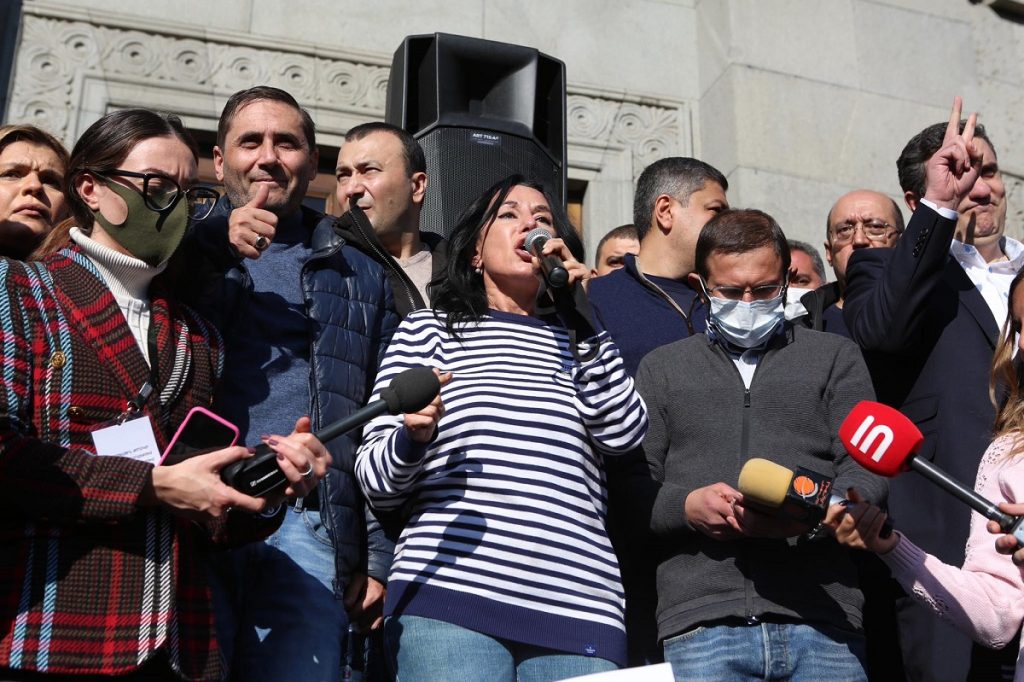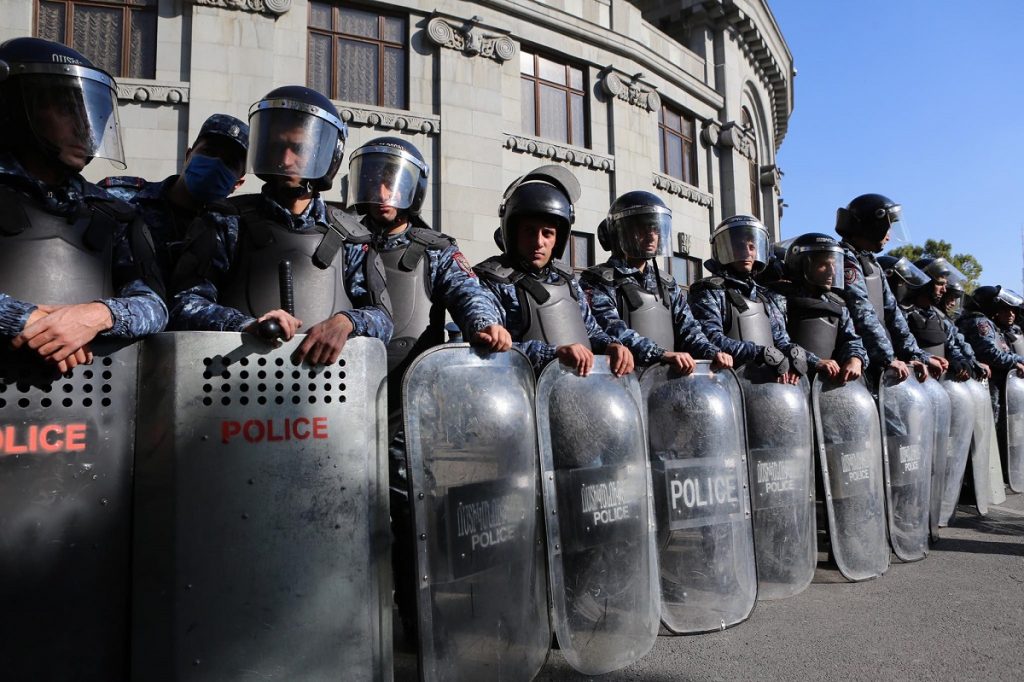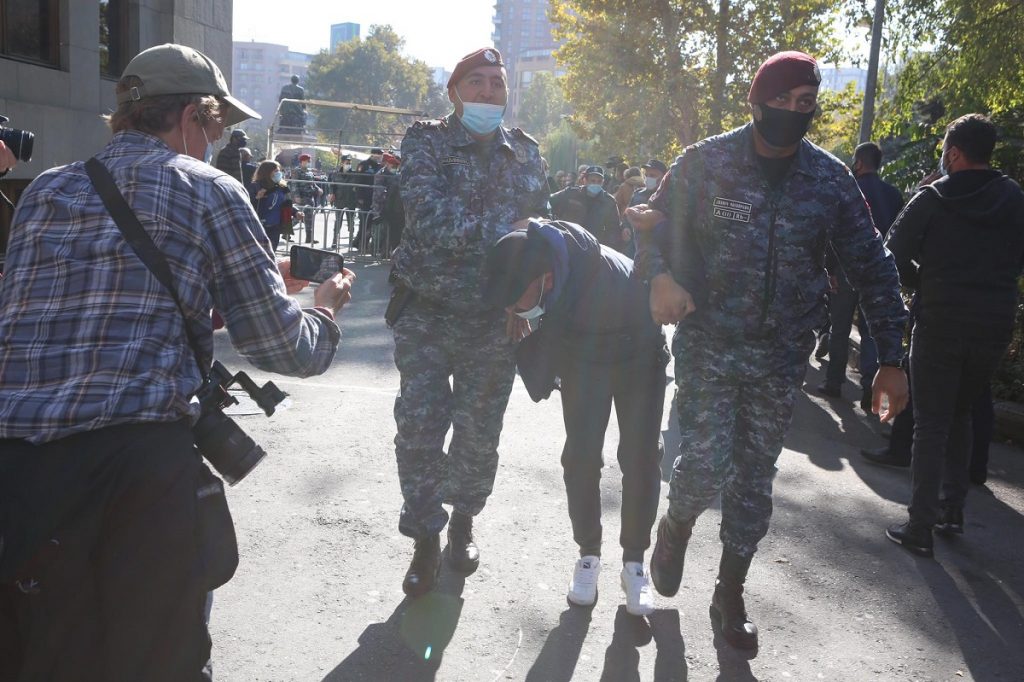Op-ed: the Karabakh agreement doesn’t mean peace, just a ceasefire
On November 10, Russia, Armenia and Azerbaijan signed an agreement on the cessation of hostilities in Nagorno-Karabakh. Immediately after the signing of the document, a protest began in Armenia.
Thousands of people and the opposition believe that this is an agreement on the voluntary surrender of Nagorno-Karabakh to Azerbaijan. What does the agreement imply and what can we expect from it? The opinion of Armenian political experts.
Director of the Caucasus Institute, political scientist Alexander Iskandaryan
The truce leaves much to be desired, it was compiled in a situation short on time
Denunciation of the agreement is hardly possible any more. Russian peacekeepers have largely settled in Artsakh, and an exodus of people has begun from the regions now under Azerbaijani control. There is only a day left until the remaining residents leave Karvachar, and I don’t think it’s a serious prospect to turn the tide against the will of Russians and to resume the war.
The signed agreement cannot be called the conclusion of peace. This agreement is not peace, it is just a ceasefire. This is a truce, a guarantee that this shooting will not resume again, at least for five years.
There are some elements of a step-by-step settlement in it, but it’s all pretty crude. In general, the document leaves much to be desired. For example, the agreement does not contain a single word about the status of Karabakh.
The status-less territory remaining under Armenian control will be governed by Karabakh officials, but the agreement doesn’t mention its status. There are no provisions regarding guarantees from the Azerbaijani side. There are many problems there, and in this regard, Armenia needs further political steps, but this is not a matter of a couple of days.
The agreement was signed under a time pressure situation, in conditions of acute crisis. The task was to stop the bloodshed, and then go further along the path of resolving the conflict. But even before the war, Azerbaijan wouldn’t agree to a real compromise settlement with the status of Karabakh. Now they will have a tougher stance.
Time will tell to what extent Russia has leverage, but this is a separate political question.
The agreement has led to discontent among society, but unity is needed to resolve the situation
Armenia needs an attitude of unity, an attitude of building further life, including a political one. Both the opposition and the authorities need to work not on dividing, but on uniting in order to achieve some kind of political constructivism. But meanwhile all political forces are being devisive, and a difficult emotional period is facilitating this.

What is happening now is an emotional shock that will pass sooner or later. But in order not to mess up during this period, one needs to try to build a foundation for the idea. We will all continue to live in this country – those who fought, and those who didn’t fight, and those who fought well, and those who fought poorly, those who made mistakes, and those who are sinless, oligarchs and ordinary people, supporters and opponents of the ruling bloc My Step, etc.
Now it is difficult to say how many supporters the authorities and the opposition each have. There are people who did not support the current government from the very beginning, they did not accept the revolution. This is part former officials, part the intelligentsia and others, they existed before and are present now as well. Then there are ones who became disillusioned with the authorities after the revolution and long before the war.
There are people of Karabakh. There are under 100 thousand displaced persons in the country, and most of them today have no housing, they simply have nowhere to return. Their houses either remained in the part of Artsakh under Azerbaijani control, or in the part that should be transferred shortly, or were destroyed altogether. It is unlikely that these people have a positive attitude to what happened.

In addition, nowadays there are mainly women, children and old people here. And those who fought, both Karabakh people and residents of Armenia, will return, and these people will also have a similar disposition.
And ahead is an economic crisis, ahead is the situation in Karabakh which we will watch closely. Accordingly, there should be many people against the authorities.
Another thing is that today this process is societal. This is not even an organized network, these are people who just go out into the street, feeling very emotional about the situation.
But this process will undoubtedly go down a political channel, it will be channeled, and this is exactly what the opposition is trying to do. They are trying to create a committee, to unite in order for the protest to take political forms, so that it is institutionalized, structured, formalized, so that a hierarchy emerges, etc.
But for this, the opposition first needs to unite, and this is an eternal problem of the Armenian political forces, and secondly, to take advantage of the existing situation to turn it into a political protest, and not just into a chaotic process on the street.
There is a real risk of polarization and split within society, and therefore some political force is needed that will work to suppress all this, for the sake of unity.
Unity is not a universal agreement, people don’t have to support a single political party or idea, but there should be a feeling that we are all in the same boat. Unfortunately, this is not happening yet, neither from the authorities, nor from the opposition, because everyone is in shock, people did not expect what happened.
It is what it is. Next, it is important to be able to work in very unfavorable conditions and to cooperate with everyone in order to resolve the situation.

Research Fellow at the Caucasus Institute Hrant Mikaelyan
Armenia should protect its interests
The likelihood of denunciation of the document is miniscule. It is difficult to tell what the opposition will offer, but potentially it would be possible to try and rearrange the situation regarding the territories still under the control of the Nagorno-Karabakh Defense Army.
You can also try to bargain for a corridor to Russia through Azerbaijan, the same as Turkey and Azerbaijan receive through Armenia. The status of the city of Shushi has not been finally determined and nothing has been agreed on the village of Dadivank. It is necessary to try to somehow protect the interests of Armenia.
In society at the moment, the alignment is close to 50-50. On the one hand, there is an obvious dissatisfaction with the Armenian Prime Minister Pashinyan and his team. And then there are supporters of the authorities – as a result of the government’s information campaign on social networks.
The situation has led to Armenia entering a protracted internal political crisis. Who and when will be in power is not so important and is difficult to predict. But this crisis is likely to last for several months.
Who is to blame?
The current military-political leadership of Armenia and Artsakh is fully responsible for the poor organization of the war, the failure of relations with allies and partners and the signing of the surrender.
The past leaders also bear their share of responsibility, since during the entire period of Armenia’s independence there were mistakes in personnel and defense policies, which, not least, led to the current situation.


















